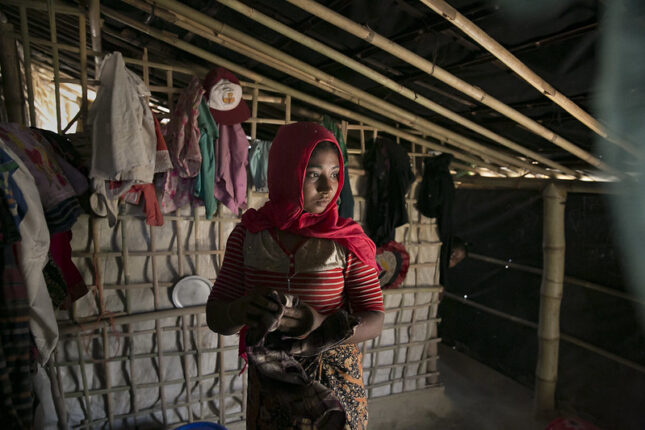-
New Global Health & Gender Policy Brief: Women and Girls in Wartime
December 13, 2023 By Maternal Health Initiative Staff
Throughout history, women have played crucial leadership roles during wartime, even if their contributions were not always well-documented or recognized. In times of conflict, societal norms sometimes shift, allowing women to step into positions of authority that might have been traditionally reserved for men. Despite indisputable evidence of women’s leadership and bravery during conflict, however, women continue to be construed as “victims” and “passive actors”—rather than the political agents, leaders, soldiers, and visionaries that they are.
The world is currently bearing witness to a surge of ongoing conflicts, each with complex geopolitical, socioeconomic, and cultural factors, which contribute to their continuation and intractability. The impact on women is clear. In 2022, some 600,000,000 women lived within 50 kilometers of armed conflict. Evidence shows that armed conflict increases the risk of gender-based violence (GBV) and maternal deaths, decreases girls’ attendance in school and women’s participation in the paid economy, and has led to the displacement of more than 40 million women and children. GBV is even more prevalent among women and girls who have been forcibly displaced.
In a new policy brief, Women and Girls in Wartime, the Wilson Center’s Maternal Health Initiative explores the diverse ways women and girls* are affected by conflict, both as targets of violence and as leaders for peace and security. We highlight existing US foreign policies to support, protect, and empower women and girls during conflict and offer recommendations to improve the wellbeing and acknowledgment of women’s and girls’ roles during wartime.
Women and Girls in Wartime by The Wilson Center
Women and girls often become targets during wartime, facing various forms of violence and abuse. Conflict zones can exacerbate existing gender inequalities, making women and girls more vulnerable to exploitation, physical violence, sexual assault and rape, torture, forced marriage, kidnapping, trafficking, forced displacement, and death—all of which occur away from the front lines, which receive the majority of attention from the media and policymakers.
Maternal and reproductive health outcomes also face significant challenges during conflict and crises. Conflict often leads to disrupted healthcare systems, limited access to essential services, and increased vulnerability for pregnant people and their children. Lack of access to health services such as obstetric, prenatal, and postnatal care negatively impacts the health and wellbeing of women, and leads to a ripple effect of adverse consequences for women. When access to family planning services is compromised during conflicts, contraceptive methods may become scarce, and family planning education may take a backseat, leading to further unintended pregnancies and unsafe abortions.
Despite these challenges, women and girls in conflict zones display remarkable resilience and courage. At the onset of conflict, civilian women are often left to defend their children and elderly family members, and—if they can escape—to find their own path to safety. As conflict ensues, a myriad of opportunities customarily earmarked for men may also arise for women. Recognizing and valuing the contributions of women in peacemaking is essential for creating more just and enduring solutions to conflicts.
To support women and girls during and after conflict, we offer the following recommendations:
- Adopt a feminist foreign policy.
- Prevent and respond to gender-based violence.
- Enforce and strengthen legal protections for women and girls.
- Promote gender equality through education and job opportunities.
- Ensure access to healthcare.
- Increase evidence-based research and documentation of lived experiences.
* For the purposes of this policy brief, we are looking at the roles of civilian women and girls and not women combatants or members of the military.
Sources: Center for Reproductive Rights, The Economist, Georgetown Institute for Women, Peace and Security, Global Citizen, The Georgetown Journal of Gender and the Law, Refugees International, UN Women.
Photo credit: Twenty-two-year-old Minara Begum in her shelter in Balukhali camp, Myanmar March 2018., courtesy of UN Women / Allison Joyce.
 A Publication of the Stimson Center.
A Publication of the Stimson Center.



